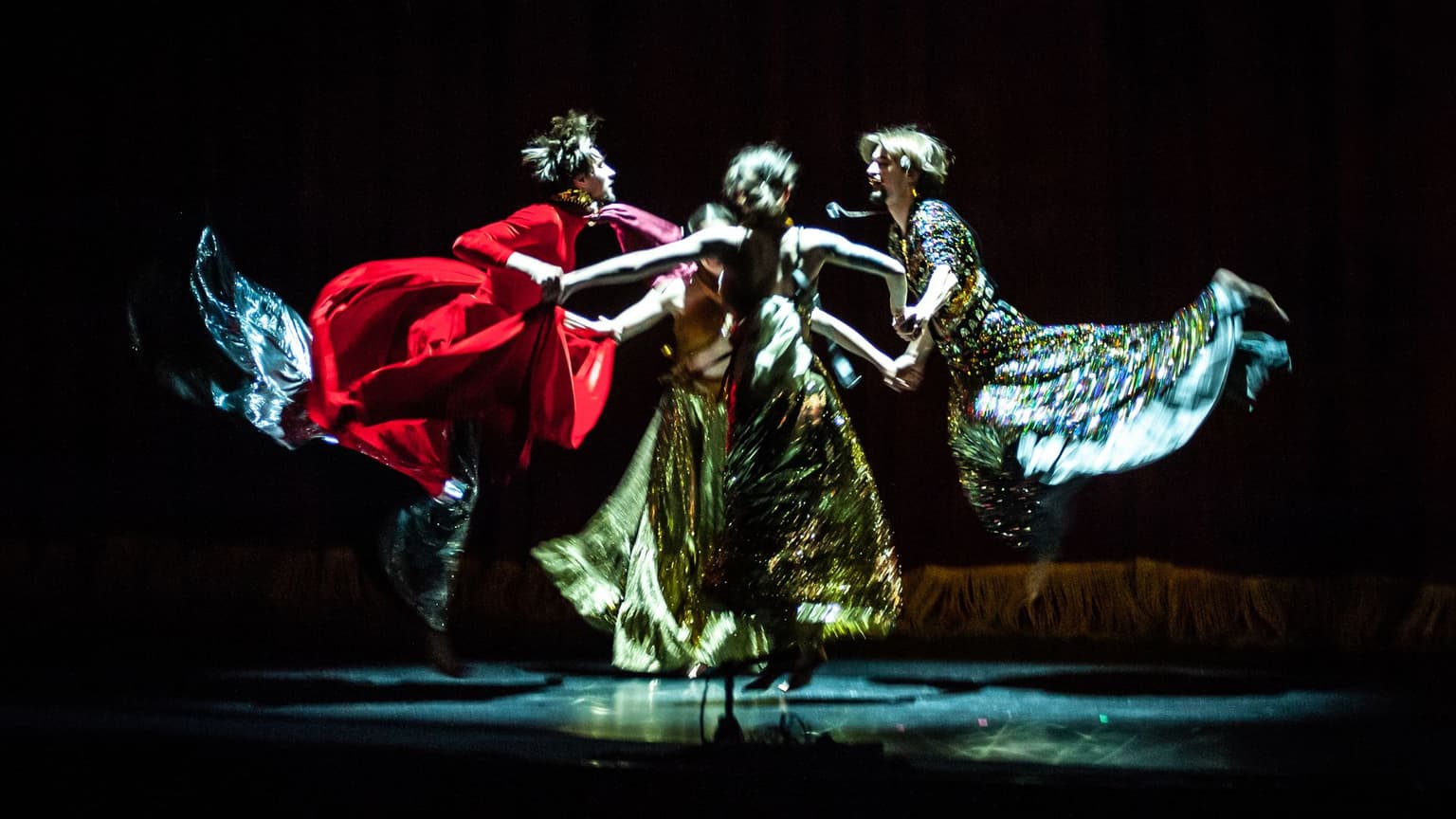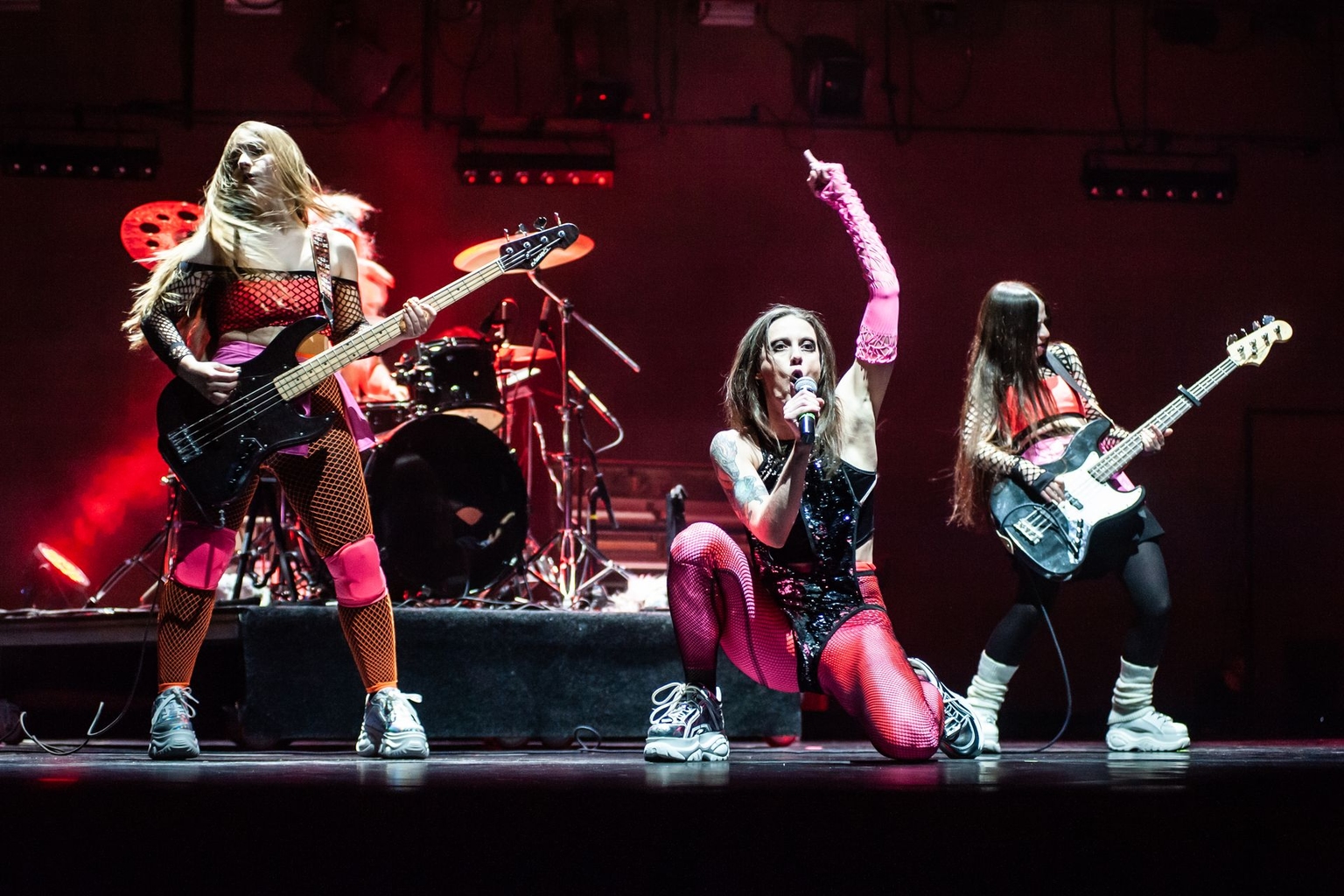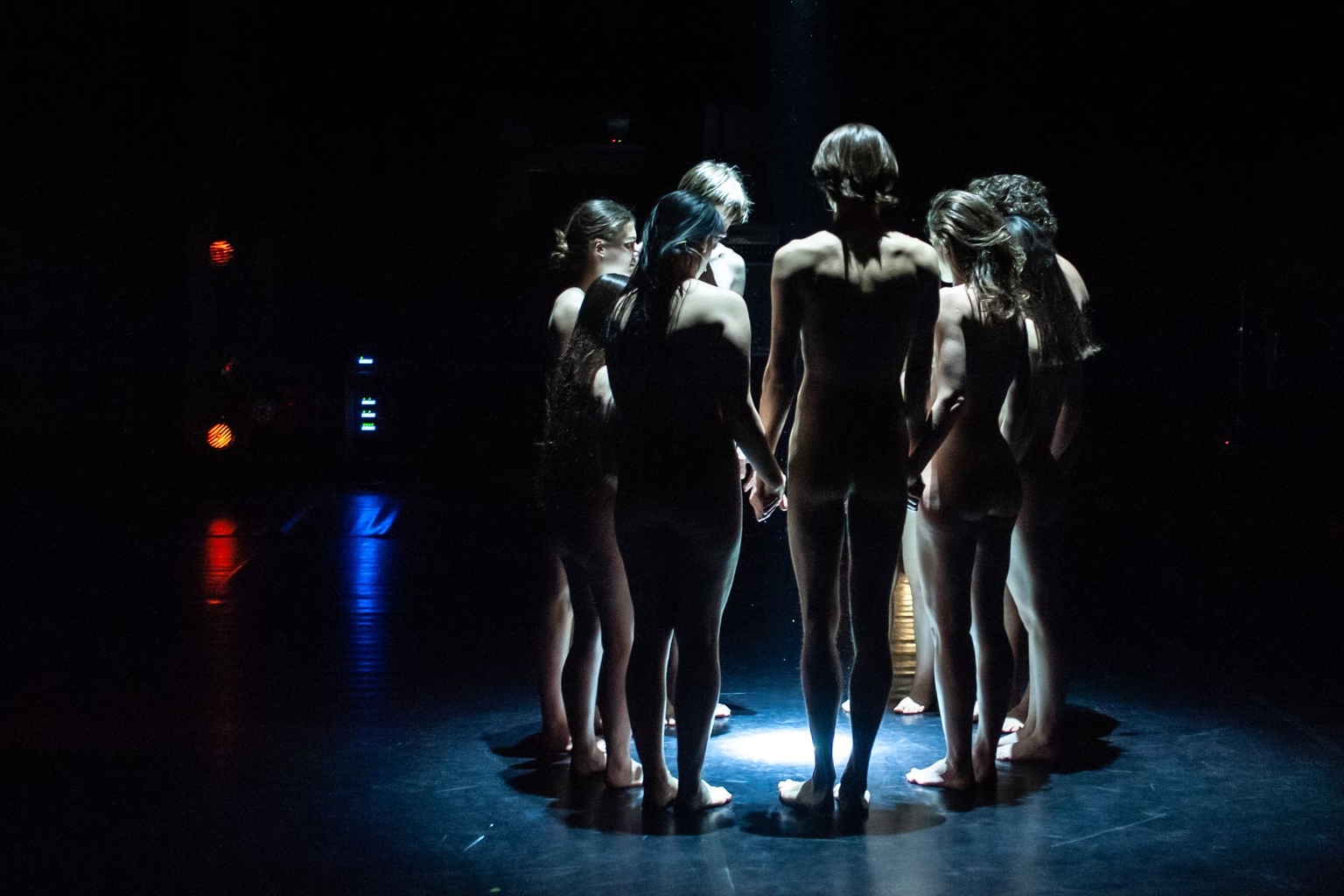Art after apocalypse — opera spurred by Russia’s ecocide in Ukraine to return to Kyiv

A moment from a postmodern opera "Gaia-24," Act I - Arkan. (Valeriya Landar / The Kyiv Independent)
Editor's Note: The Kyiv Independent is a media partner of the "Gaia-24: Opera del Mondo" performance on Nov. 27 in Kyiv.
Even in the midst of Russia’s ecocide against Ukraine — where forests are scorched, rivers are poisoned, and crops are torn apart by shellfire — life refuses to end. Nature sends up green shoots through craters — and in the same spirit, art rises through grief.
"Gaia-24: Opera del Mondo," the opera inspired by Russia’s 2023 destruction of the Kakhovka Reservoir dam in Kherson Oblast, is set to make its return to the Kyiv stage in late November at the Lesia Ukrainka National Academic Drama Theater.
Since the May 2024 premiere in Kyiv, Opera Aperta, the team behind "Gaia-24: Opera del Mondo," has reshaped it with new music, fresh performers, and updated video sequences.
“The premiere was only the beginning — the opera evolves all the time as the landscape (of Kakhovka) heals itself,” composer Roman Grygoriv told the Kyiv Independent.
The opera belongs to a new wave seeking to redefine the art form with formats that depart from classical norms. Blending folk, cabaret, and other genres in a clash of sound and spectacle, the production sees its performers strip down in a number of scenes, baring both body and soul as they play.

“The project aims to understand how art can help our society navigate the never-ending wars against humanity and the ecological battles threatening our planet,” composer Illia Razumeiko said.
“We want to explore how Ukraine’s experience — and the lessons we are learning from the tragedy of Russia’s invasion — can be transformed into a new methodology, a fresh approach, and a set of tools that can help save us in future crises.”
This isn’t the first time that tragedy and the forces of nature colliding in Ukraine have inspired Opera Aperta’s work.
Before "Gaia-24: Opera del Mondo," the team created the 2020 production “Chornobyldorf” — a haunting journey through the ruins of an imagined global catastrophe and the collapse of civilization. Its title evokes the 1986 Chornobyl nuclear disaster.
During the summer of 2020, while developing “Chornobyldorf,” the team embarked on expeditions to southern Ukraine, which included filming in the waters of the Kakhovka Reservoir — waters that would later be devastated by Russian forces during the full-scale invasion.
In the early hours of June 6, 2023, Russian forces detonated the dam of the Kakhovka Reservoir.

The ensuing floods wreaked the greatest havoc in Kherson Oblast, but the environmental fallout rippled far beyond, affecting the neighboring Mykolaiv, Zaporizhzhia, and Dnipropetrovsk oblasts as well.
Ukrainian authorities confirmed that around 60 people had died from the flooding in the country’s south, but given that much of southern Ukraine is currently under Russian occupation and the occupation authorities mishandled the crisis, the actual death toll is much higher but remains unconfirmed.
Over 500 homes in Mykolaiv Oblast were ruined by the flooding, and although half of Kherson Oblast remains under Russian occupation, estimates point to nearly 20,000 homes in the region being ruined.
Opera Aperta launched work on "Gaia-24: Opera del Mondo" just two weeks after the catastrophic event.
The opera’s title invokes the Gaia Theory, first articulated in 1970s England, which envisions Earth as a vast, self-regulating organism — its living and nonliving systems intricately collaborating to sustain the conditions that make life possible.
Recognizing the role of rivers is essential to grasping Gaia Theory, as they facilitate nutrient cycling, climate regulation, energy flow, and biodiversity, illustrating the interconnected systems that sustain life on Earth.
For the creative team behind "Gaia-24: Opera del Mondo," it’s important that the opera inspires and deepens public discussions about the role of rivers within ecological and cultural systems — and understand how vital these discussions are today.
“For Ukraine, the Dnipro River — now transformed into a front line — embodies this tension most visibly. For Europe, questions of how river systems will shape the continent’s ‘peaceful’ future remain no less pressing,” Grygoriv said.
Even amid the crushing weight of Russia’s ongoing crimes against Ukraine, "Gaia-24: Opera del Mondo," which draws its source materials from one of the darkest moments of the full-scale war, has captured the attention of people both inside Ukraine and around the world.
"Gaia-24: Opera del Mondo" has enjoyed success not only in Ukraine but across Europe, including a performance at the Venice Biennale in 2024.

The Opera Aperta team has achieved notable successes over the past year, but staging a production of this scale — especially in Ukraine — remains an expensive and daunting undertaking. Last year’s premiere alone cost around Hr 1 million ($24,204), according to the team. Around 90% of that went to renting the venue and technical equipment, leaving just 10% for compensating the team that made the production possible, the creators said.
“Even so, we had to borrow additional funds, as the budget still fell short. Producing work in Ukraine is costly, since the government does not finance independent theater and opera — the entire independent sector, regrettably, survives on self-funding,” Razumeiko said.
Early audience reactions have left the opera’s creative team optimistic about the worth and longevity of "Gaia-24: Opera del Mondo": half of the upcoming Kyiv show’s tickets sold in just a week, with some seats still up for grabs.
According to Grygoriv and Razumeiko, this shows that the opera “remains relevant to audiences.”
“They are eager to experience it again — or for the very first time.”
Note from the author:
Kate Tsurkan here, thanks for reading my latest article. It constantly amazes me how Ukrainian culture continues to thrive during wartime, where the main goal is to survive — but then again, part of that survival entails the continuation of culture which Russia seeks to destroy. There's nothing more powerful than turning tragedy into art, so I'm personally looking forward to seeing how "Gaia-24" evolves as both a testimony and a performance. If you like reading about this sort of thing, please consider supporting The Kyiv Independent.












